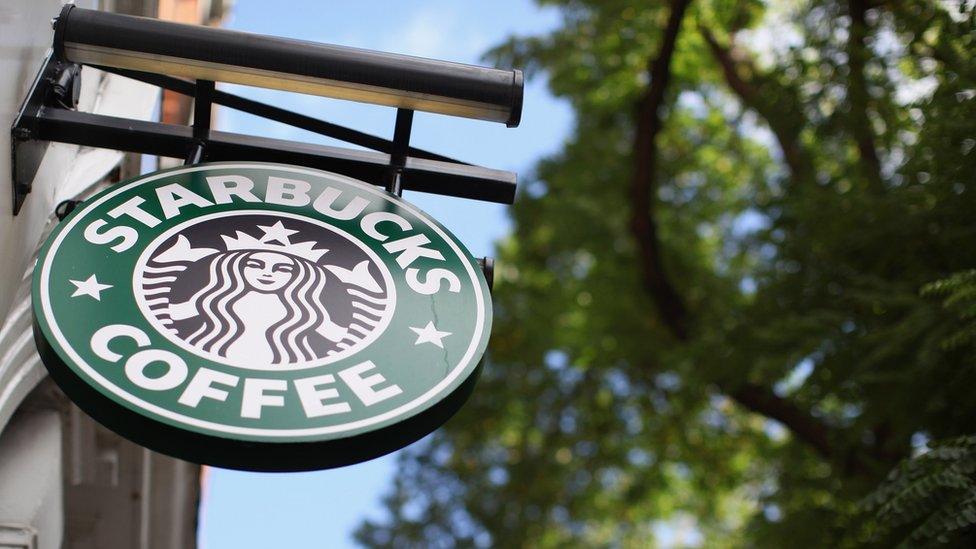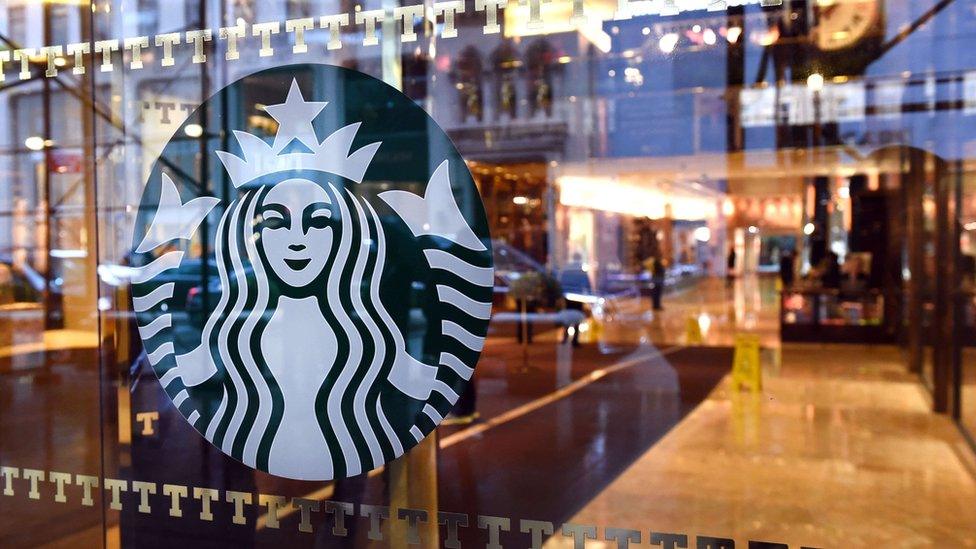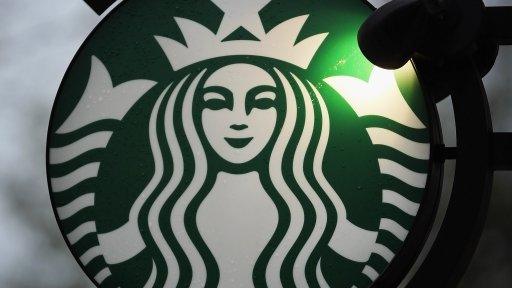Starbucks pays £8m in tax as profits surge
- Published

Starbucks UK has paid more than £8m in tax in the past 12 months on the back of record profits.
Pre-tax profits jumped to £34.2m in the year to 27 September, compared with less than £2m the previous year.
Sales grew by 3.8% after the company invested heavily in turning the business around.
The UK arm of the world's biggest coffee chain said in 2012 it would pay significantly more in tax after a public outcry at how little it paid.
Prior to 2012, the company paid just £8.6m in corporation tax in its 14 years of trading in the UK, despite sales worth billions of pounds. In 2011, for example, the company recorded sales of almost £400m.

Analysis: Kamal Ahmed, BBC business editor
How things have changed. Starbucks will pay as much tax this year as it did in its first 15 years of operation in the UK, where it started trading in 1998. For many years it paid no corporation tax at all, bringing a welter of criticism.
The change is for two reasons. First, the business is now more profitable, getting out of expensive store sites such as on Oxford Street in London and increasing the profit it makes for every cup of coffee sold.
Second, it has changed the way it accounts for payments made to other parts of its global business, for example paying for the right to use the name Starbucks and buying its coffee.
Legal tax deductions for those payments was the spark for all the controversy and means that Starbucks now makes more profit officially in the UK, rather than the low tax Netherlands or Switzerland.
Starbucks' tax controversy lost customers, and in the highly competitive coffee market that was unsustainable.

"Thanks to the commitment and hard work of our partners (employees), Starbucks has delivered its largest ever after-tax profit since opening in the UK in 1998," said the company's European boss Kris Engskov in a written statement.
"Before and after-tax profits are both up by more than £30m as we have invested in the store experience while managing our costs.
"As a result, our corporation tax payments also increased."
A company spokesperson told the BBC the company had focused on renegotiating leases, closing unprofitable stores, opening more franchise stores and cutting costs across the business.
To this end, the chain transferred 74 stores to franchisees and opened 29 new franchised stores.
- Published27 November 2015

- Published24 September 2014

- Published6 December 2012
